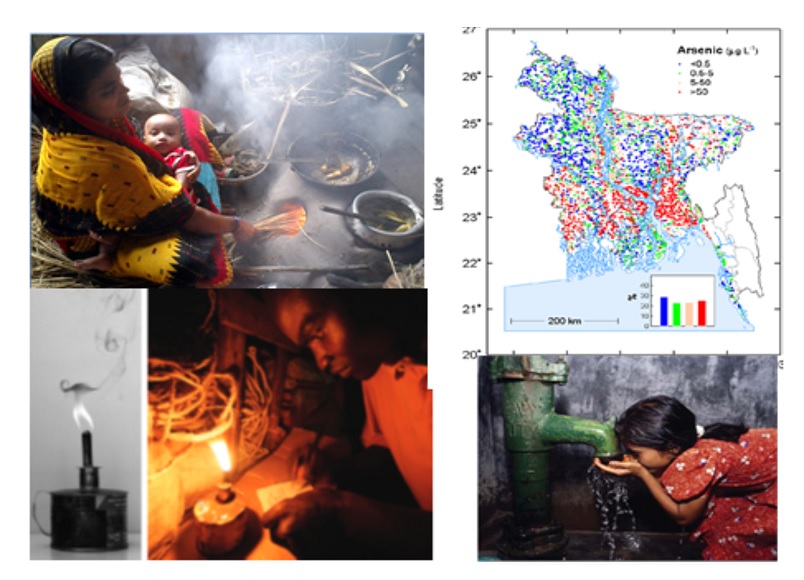Membranes
Clean Water and Sustainable Energy for Rural Communities.
Sustainable energy and drinking water access are two major and intertwined challenges at global level. More and more water is used for energy production worldwide while energy consumption for clean water production also increases rapidly. Lack of water and energy threatens social and economic development particularly in rural areas of developing countries like Bangladesh.
Our research promotes a universal approach towards tackling this dual challenge via renewable generation of biogas and solar power, integrated with membrane distillation employed at the village level. Membrane distillation (MD) is a thermally driven water purification technology, which has significant advantages over other processes. It operates at low temperature and pressure, has low electricity consumption, high separation efficiency, and produces useful excess heat.
The HPT lab and MD research group at KTH have been working together with national and international organizations (SIDA, Energiforsk and Scarab) to solve these multifaceted problems. The research results indicates that this “polygeneration” system with membrane distillation is much more economically and environmentally competitive than others technologies. This can make an important contribution to meet the dual challenge of safe water and sustainable energy, locally and globally.

